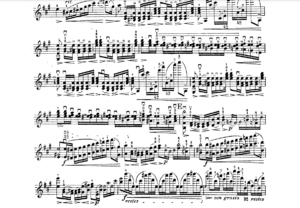 10 Advanced Techniques to Memorize Music
10 Advanced Techniques to Memorize Music
Memorizing music is a hallmark of a seasoned musician, elevating performances to new heights of expressiveness and connection with the audience. Whether you’re a soloist, chamber musician, or part of an orchestra, these advanced techniques will help you commit your music to memory with finesse and confidence.
1. Chunking: Divide and Conquer
Break down the music into smaller, manageable sections or “chunks.” Memorize each chunk individually before connecting them to form the complete piece. This technique enhances recall and reduces the cognitive load.
2. Visualization: Picture the Performance
Create mental images of the music as you play or sing. Visualize the sheet music, your instrument, and the venue. Associating the music with vivid mental images strengthens memory recall during performance.
3. Spatial Awareness: Map Out the Music
Develop a spatial awareness of the music on your instrument or the sheet music itself. Identify key landmarks, patterns, and positions. Associating physical movements with musical phrases aids in memorization.
4. Memory Palaces: Create a Mental Landscape
Apply the ancient technique of building a “memory palace” for your music. Associate each section with a specific location or room in an imaginary palace. As you mentally navigate the palace, you’ll recall the corresponding musical passages.
5. Mnemonics: Musical Memory Aids
Create mnemonic devices to remember challenging sequences, intervals, or note patterns. Mnemonics can be verbal, visual, or even physical associations that help trigger your memory during performance.
6. Analytical Memorization: Understand the Structure
Deepen your understanding of the musical structure, harmonies, and form. Analyzing the composition helps you grasp the relationships between sections, making it easier to remember the music as a cohesive whole.
7. Kinesthetic Memory: Engage Your Body
Engage muscle memory by incorporating physical movements while playing. Connect specific gestures or motions with musical phrases. This kinesthetic approach enhances memory recall, especially in high-pressure situations.
8. Random Starting Points: Test Flexibility
Practice starting from various points within the piece. This prevents reliance on a linear progression and strengthens your ability to pick up from any section if memory lapses occur during performance.
9. Repetitive Variation: Reinforce Neural Pathways
Avoid mindless repetition. Instead, vary your practice by playing sections in different tempos, dynamics, or articulations. This reinforces neural pathways and prevents rote memorization.
10. Memory Games: Challenge Yourself
Incorporate memory games into your practice routine. Cover parts of the sheet music, play from memory, and then check for accuracy. Challenge yourself with increasingly longer passages to strengthen your memory recall.
The Symphony of Memory Mastery
By incorporating these advanced techniques into your practice routine, you’ll not only memorize music more effectively but also enhance your overall musicianship. Approach memorization as a creative and dynamic process, allowing the music to become an integral part of your artistic expression. With dedication and strategic practice, you’ll navigate the intricate landscape of musical memory with confidence and grace.
